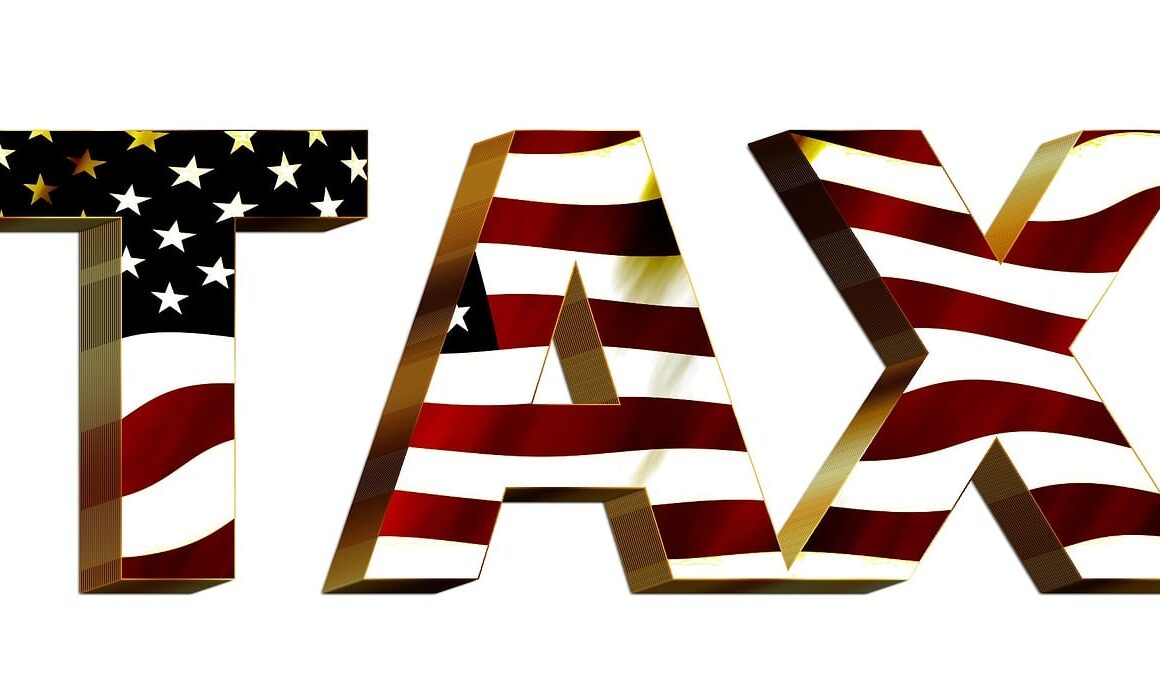State vs. Federal Payroll Tax Regulations: Differences Explained
Understanding the payroll tax regulations is crucial for both employers and employees. Payroll taxes include various federal, state, and local taxes that are deducted from an employee’s paycheck. Federal payroll taxes typically cover Social Security and Medicare, while state payroll taxes can vary by jurisdiction. Employers are responsible for withholding these taxes from employee wages and remitting them to the appropriate government agencies. Each state may have its own tax structure, leading to different rates and regulations surrounding payroll. Businesses often need to have systems in place to ensure compliance with these laws. Given the complexity, particularly in multi-state operations, companies should remain diligent in their understanding of payroll regulations. Various resources, including state websites and IRS guidelines, provide necessary insights. Furthermore, using payroll software can streamline the process and minimize errors. Employers should be aware that violations can lead to fines. In addition to taxes, businesses must also comply with all other payroll regulations, such as overtime laws and minimum wage requirements. Keeping accurate records and staying updated with tax changes is fundamental for any business. Remaining compliant ensures the smooth operation of payroll management.
Federal Payroll Tax Regulations Overview
Federal payroll taxes primarily consist of Social Security and Medicare taxes, which are mandated by law. The Federal Insurance Contributions Act (FICA) governs these taxes, requiring employers to withhold specific percentages from their employee’s earnings. As of 2023, the Social Security tax rate for employees is 6.2%, while the Medicare tax rate is 1.45%. Employers must match these contributions. One significant characteristic of federal regulations is their uniformity across all states. This means that, regardless of where an employee works, the same federal taxes apply. Additionally, there is a cap on wages subject to Social Security tax, which can fluctuate annually; however, Medicare does not have an earnings cap. Any amounts earned above this threshold are still subject to Medicare tax. Federal payroll tax regulations also involve filing paperwork such as Form 941, quarterly payment of the withheld taxes, and Form W-2 for reporting annual wages and taxes withheld. Non-compliance can result in harsh penalties. Therefore, employers need to be familiar with the laws surrounding federal payroll taxes to avoid unnecessary fines and ensure all payments are made promptly.
State payroll tax regulations differ significantly from federal regulations, as each state has its own rules and rates that can vary widely. States may implement different types of payroll taxes, including income taxes, unemployment insurance taxes, or disability insurance taxes. For instance, some states may have a flat tax rate, while others may use a progressive tax system based on income levels. It’s essential for employers to understand the specific regulations that apply within their state of operations. Moreover, keeping up with changing legislation is a critical aspect of state compliance. Not all states require income tax withholdings; states like Texas and Florida have no state income tax, thereby influencing payroll calculations significantly. This discrepancy can lead to misunderstandings regarding total payroll costs. Additionally, while federal withholding requires employer matching contributions for Social Security and Medicare, state taxation rules often do not entail similar matching requirements. Employers must verify their employee eligibility for state-specific tax benefits and deductions, as these can vary widely. Understanding both federal and state regulations allows for overall better financial planning and ensures compliance within payroll management operations.
Implications for Employers
Payroll tax compliance can pose challenges for employers, especially those operating in multiple states. Multiple jurisdictions and their regulations require thorough attention and knowledgeable staff to manage payroll efficiently. Mishandled payroll taxes can lead to severe repercussions, including hefty fines, penalties, and additional interest accrued on unpaid taxes. Furthermore, the company’s reputation may suffer as a result of non-compliance, impacting employee trust and company credibility in the marketplace. To mitigate these risks, many businesses opt to utilize professional payroll services or software designed to ensure adherence to ever-changing regulations. Such solutions can help automate the process, reducing the likelihood of human error. Furthermore, they can provide reporting capabilities that simplify tax filings and compliance audits. Regular training and updates for HR personnel about federal and state regulations are also vital. Establishing protocols for payroll processing and documentation can ensure that all employee deductions are accurate and timely. Moreover, employers may explore educational resources or consult tax professionals to improve understanding. Ultimately, staying informed and prepared can alleviate many stressors associated with payroll regulations, enabling better focus on business operations and growth.
Payroll regulations require employers to go beyond simply paying taxes; they must adequately inform employees about their payroll rights and deductions. Employees should be educated regarding how their payroll taxes are calculated and what purposes those taxes serve. Engaging in transparent communication helps to establish trust and possibly improve employee satisfaction. Understanding allows employees to appreciate the importance of taxes in funding essential services like Social Security and Medicare. Furthermore, this awareness can lead to more engaged discussions about financial planning and benefits within the workforce. Employers should also provide clear documentation of annual W-2 forms, outlining how much tax has been withheld over the year. Open communication lines can allow employees to ask questions or seek clarifications regarding their payroll deductions. It can also foster a culture of compliance, where both employees and employers work together to uphold payroll integrity. Educational workshops and financial planning seminars can be valuable tools in this regard. Overall, enhancing employee understanding about payroll processes serves to create a more cohesive work environment and can improve the efficacy of payroll tax management without complications.
Future Trends in Payroll Tax Regulations
As business landscapes evolve, so too do payroll tax regulations, and employers need to anticipate potential changes. Legislative trends indicate that states may continue to adjust their payroll tax rates and regulations in response to economic conditions and social trends. For instance, recent discussions focus on increasing minimum wage laws that may further affect payroll processes. Furthermore, as remote work grows in popularity, nuances in payroll compliance arise, particularly concerning state income taxes. In such cases, determining the tax implications for remote employees becomes increasingly complicated as states may have specific rules based on the employee’s location. Businesses must remain agile and ready to adapt to these changes while also ensuring compliance with existing regulations. Emerging technology continues to play a significant role in shaping payroll management, as advancements can streamline operations and improve accuracy. Innovations in payroll software can even automate compliance checks against current laws and offer insights into trends that impact tax obligations. Employers must balance between maintaining compliance while also leveraging technology to enhance efficiency and accuracy in payroll management, adapting to this rapidly changing regulatory environment.
In conclusion, understanding the differences between state and federal payroll tax regulations is essential for businesses to avoid unnecessary complications and ensure compliance. With varying tax obligations across different jurisdictions, maintaining awareness of these regulations can create significant administrative challenges. Employers must take an active role in understanding how federal regulations differ from state laws, as both will impact payroll operations immensely. Regular training and updates, combined with proactive adoption of technology, can greatly benefit organizations. Staying informed helps in reducing the risk of costly mistakes while capitalizing on potential tax credits or deductions available under various laws. Furthermore, establishing strong communication within the organization regarding tax regulations fosters a compliant environment. As regulations continue to evolve systematically, anticipating changes will allow businesses to be better prepared. Additionally, as economic conditions and workforce dynamics shift, understanding payroll tax protocols will enable companies to remain competitive. Therefore, staying informed and involved in payroll management is not just a regulatory obligation; it is a vital strategic component for the success and sustainability of businesses in any industry.





